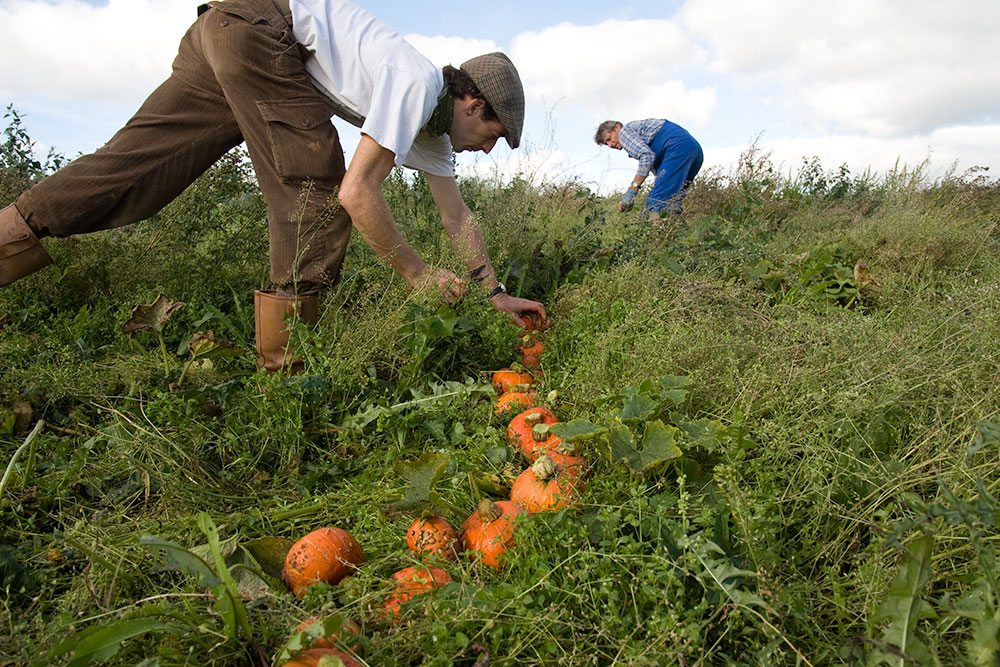
This week, I woke to find the lightest of ground frosts rolling off my southfacing pumpkin and squash field and settling in the sheltered valley meadow below. During the day, temperatures are still climbing to 20°C; this will help to harden the squashes’ skins, sweeten the flesh and seal the stalks. With good, well-cured skins, some varieties will keep to the spring – but even a light frost will soften the skins and prevent them from keeping. We are pushing our luck.
Some heavy rain last week, followed by a few days of dry weather, have made ideal conditions for potato harvesting. But if they are to store through to the first new season’s liftings in May, we must be patient and wait for the skins to set. Organic potato crops are normally brought to an abrupt, premature end by potato blight: a voracious pathogen that, under warm, humid conditions, can go from a few black specks to 90% leaf loss in a week. Without care the blight can also reach the tubers, resulting in a foul, putrescent smell unequalled in the plant kingdom. Our strategy is to remove the foliage when 30% of the leaf area is affected, by mowing or burning it off with a giant tractor-mounted gas grill; we then wait two weeks (three this year) for the potatoes’ skins to set before harvesting them into wooden boxes. For two or three weeks the store is ventilated with ambient air to dry the tubers and allow any harvest damage to heal. Until Christmas, most varieties can be stored at ambient temperature or cooled with just night air; after that we must use fridges to fool those drowsy spuds that spring is still a distant dream. Typically they are kept at 4°C until it is time to gently warm them prior to grading (cold spuds bruise easily). Valor, the most naturally dozy variety, will keep until June.
For the last nine months we have been agonising about what is the least bad packaging option, particularly when it comes to plastic. We have settled on 100% home-compostable punnets and bags by the end of 2020 – but it has been a hugely frustrating process. Try as we might, we cannot deliver a sensible policy while the government abdicates its responsibility by allowing countless different kerbside collection policies across the UK. Those with the time and inclination can hear my thoughts at facebook.com/riverford.















0 Comments